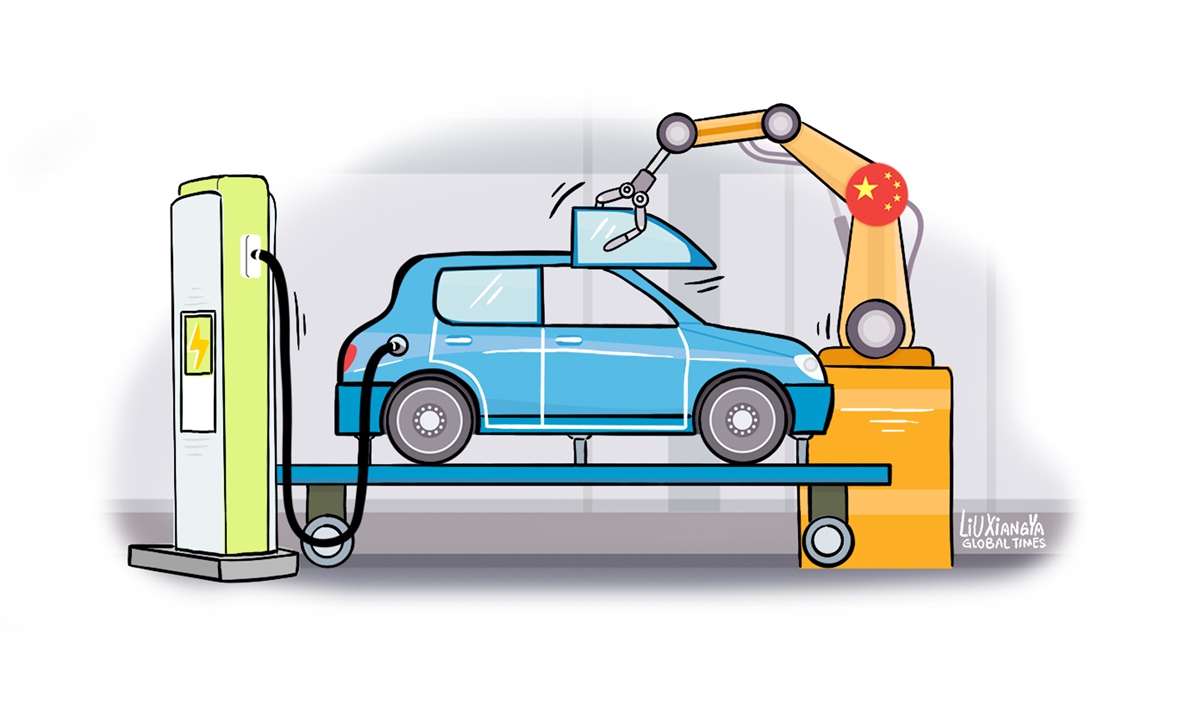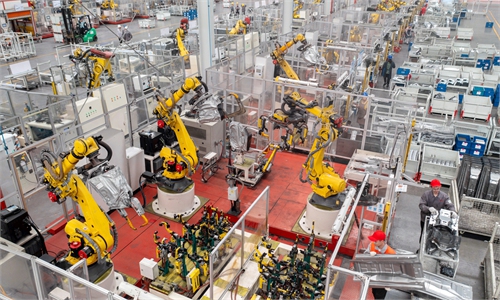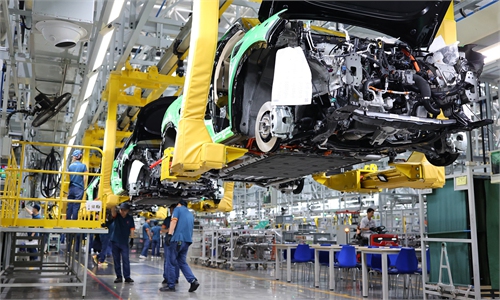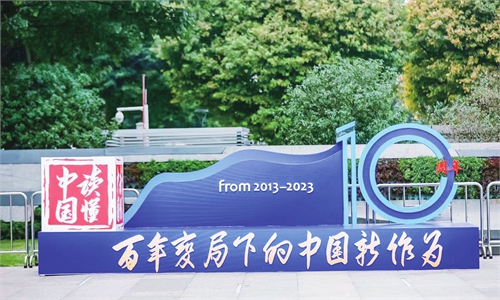
Illustration: Liu Xiangya/Global Times
It was reported in late November that British Investment Minister Dominic Johnson wanted to attract Chinese automakers to move their manufacturing facilities to the UK. This is an interesting development, especially considering Europe's announcement of an anti-subsidy probe into Chinese electric vehicle (EV) manufacturers.
The situation in Europe is complex due to countries' diverse interests. France, for instance, does not sell many cars to China, so it is not concerned about potential EU anti-subsidy tariffs on Chinese cars and potential Chinese countermeasures.
However, Germany, which has a significant car market in China, will be heavily affected by such tariffs. Given the varying interests within the EU, it is unlikely that a solution will be reached that satisfies all member states.
Germany holds a dominant position in the car industry, but in the past, the UK was a major player. Renowned British brands such as Rolls-Royce, Aston Martin and MG were prominent in the industry. However, MG and Lotus have been acquired by Chinese auto manufacturers.
The UK has experienced de-industrialization, but now it is making efforts to re-industrialize. Nevertheless, the country faces challenges due to the high costs of energy, raw materials and labor, as well as its departure from the EU market. These factors make re-industrialization difficult for the UK.
The EV revolution is well underway, with China taking a significant lead in various aspects. China's manufacturing capacity, efficiency and cost-effectiveness are unmatched, making it the largest producer and seller of EVs globally. The country's economies of scale provide unparalleled efficiency, giving it a competitive edge over other players in the market.
Germany, France and the UK are making significant efforts to enter the EV industry on a large scale. However, this poses a challenge for them as the majority of batteries are currently produced by China, which possesses the necessary technology. Consequently, German, French, American and British companies are seeking to establish joint ventures with Chinese battery manufacturers. German auto manufacturers are even considering acquiring Chinese companies, recognizing that if they cannot surpass Chinese competitors, they can instead purchase them.
Foreign investors are actively pursuing other Chinese EV manufacturers. Wealth funds from the Middle East have engaged in extensive discussions regarding the acquisition of Chinese EV manufacturers and relocating their assembly operations to the Middle East. These discussions have gained significant momentum, with Saudi Arabia showing particular interest in advancing renewable energy sources.
The vehicle sector has been a cornerstone of every major industrialized country since the beginning of industrialization. It has created many suppliers and component makers, as well as many jobs. Furthermore, the accompanying services such as after-sales services and maintenance have proven to be highly lucrative businesses, providing yet more employment opportunities. Therefore, the auto sector has consistently played a crucial role as a pillar of any industrialized economy.
The accomplishments of China in the auto industry are undeniably impressive. There are two major factors contributing to this remarkable success.
Firstly, the Chinese government has demonstrated a steadfast dedication to the development of the automobile sector, placing great emphasis on this objective. Secondly, the sheer magnitude of the Chinese economy has enabled the rapid advancement of the industry. China has been the world leader in sales for several consecutive years.
When it comes to innovation, many auto manufacturers, particularly those from Germany, acknowledge that they are constrained by outdated ideas and concepts that have not kept up with the internet age. In contrast, Chinese automakers are not bound by the limitations of the past. They have the ability to innovate and incorporate user-friendly applications, which has been truly remarkable. It will take a significant amount of time for other companies to catch up to the advances made by Chinese EV makers.
This article was compiled based on an interview with Charles Liu, senior fellow at Taihe Institute. bizopinion@globaltimes.com.cn



